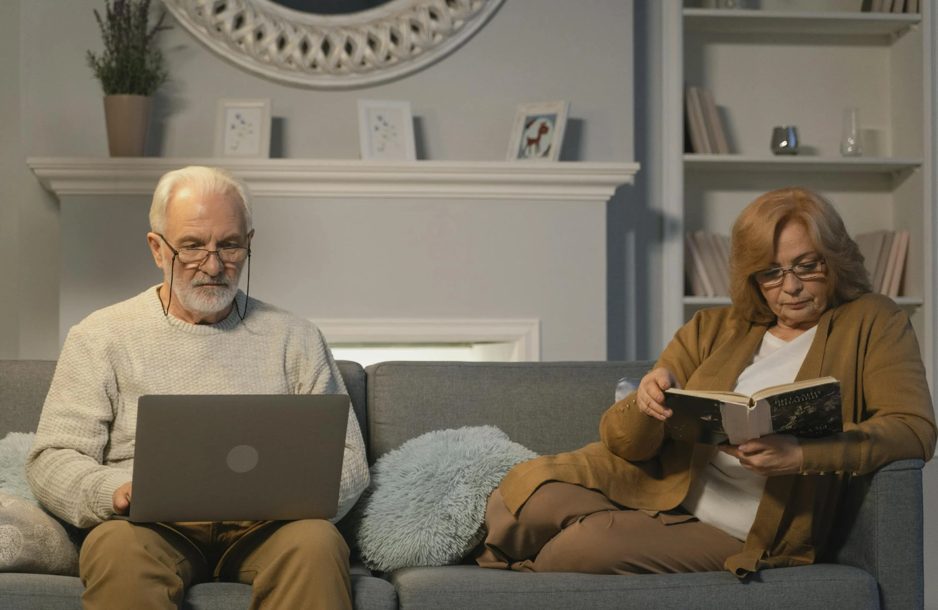
@ShahidNShah


As technology continues to evolve in the health industry, smart home devices are becoming powerful tools for enhancing the safety, health, and independence of seniors. These innovations are not just about convenience; they are about empowering older adults to maintain control over their environment and daily routines.
With user-friendly designs and thoughtful integration, smart home technologies are enabling seniors to stay in their own homes longer, reduce reliance on external care, and enjoy greater peace of mind.
From fall detection to health monitoring, these devices are transforming senior living in ways that were once unimaginable. Here are the top five smart home technologies that are leading the charge in empowering older adults to lead safer, healthier, and more independent lives.
Falls are a major concern for seniors, as they can lead to serious injuries and even long-term disability. Smart fall detection systems use advanced sensors and algorithms to detect when a fall has occurred. These systems are often built into wearable devices, such as smartwatches or pendants, or integrated into smart home hubs.
Once a fall is detected, an alert is automatically sent to emergency contacts or medical professionals, enabling a rapid response.
Some smart fall detection devices also feature two-way communication, allowing the senior to speak directly with a caregiver or emergency service if they need help. The most advanced systems use a combination of motion sensors and cameras (with privacy safeguards) placed around the home to detect unusual movements, further enhancing safety.
Voice-activated assistants like Amazon Alexa, Google Assistant, and Apple’s Siri have become essential tools in smart home setups. For seniors, these devices offer an easy and hands-free way to manage daily tasks.
By using simple voice commands, seniors can control lights, thermostats, and locks, set reminders, make phone calls, and even listen to music or get the latest news.
Voice-activated assistants can also be programmed to provide daily health check-ins, such as reminding the user to take medication, drink water, or perform exercises. Additionally, these voice assistants can be integrated with other smart devices in the home, enabling comprehensive voice control of the entire living space. For seniors who may find technology challenging, devices like the Jubilee TV simple remote for seniors offer an easy-to-use solution, allowing them to control smart home features and entertainment with straightforward commands, ensuring accessibility and ease of use.
Managing medications can be challenging for seniors, especially those with complex schedules involving multiple prescriptions. Smart medication dispensers offer a solution by automating medication management and reminding users when it’s time to take their pills. These devices can be programmed to dispense the correct dosage at the appropriate time, reducing the risk of missed doses or accidental overdoses.
Some smart dispensers are connected to mobile apps that notify caregivers if a dose is missed, providing an extra layer of monitoring. This technology is particularly beneficial for seniors with memory issues or cognitive impairments, as it helps them stay on track with their health regimen.
Safety is a top priority for seniors living independently, and smart home security systems provide advanced solutions to protect them. Modern smart security systems come with features like doorbell cameras, motion detectors, smart locks, and window sensors. These devices can be accessed and controlled remotely via smartphone apps, allowing seniors or their caregivers to monitor the home from anywhere.
Smart locks can be particularly useful, as they allow for keyless entry. This means that caregivers can access the home in case of an emergency without needing a physical key. Some systems even integrate with voice-activated assistants for added convenience.
Remote health monitoring is a game-changer for seniors managing chronic conditions or recovering from surgeries. Wearable health monitors can track vital signs such as heart rate, blood pressure, blood oxygen levels, and glucose levels in real time.
The data collected by these devices can be shared directly with healthcare providers, allowing for proactive management of health conditions.
Remote monitoring devices are often integrated with apps that provide real-time alerts for abnormal readings, enabling timely medical intervention if necessary. This technology helps reduce the need for frequent doctor’s visits, allowing seniors to enjoy a higher quality of life while still keeping their health in check.
While each of these smart home technologies offers significant benefits on its own, combining them can provide a more comprehensive approach to senior care.
For example, a home equipped with smart fall detection, medication management, and voice-activated assistants can significantly reduce the risks associated with independent living while improving overall quality of life.
Caregivers can further enhance this approach by integrating caregiving apps that connect with these devices, allowing for a consolidated view of the senior’s health and safety. This holistic setup provides the support older adults need to live comfortably and securely in their own homes.
Smart home technologies are transforming the way seniors live by offering innovative solutions that enhance safety, promote health, and support independence.
From fall detection and medication management to voice-activated assistance and remote health monitoring, these technologies empower older adults to maintain control over their daily lives while providing peace of mind to their families and caregivers.
As these technologies continue to advance, they will play an increasingly crucial role in shaping the future of senior living.

Rehabilitation has come a long way, and technology is playing a huge role in transforming how people recover from addiction. Gone are the days when drug treatment centers in Florida and other states …
Posted Oct 14, 2024 Care Management Fundamental Technologies Addiction
Connecting innovation decision makers to authoritative information, institutions, people and insights.
Medigy accurately delivers healthcare and technology information, news and insight from around the world.
Medigy surfaces the world's best crowdsourced health tech offerings with social interactions and peer reviews.
© 2025 Netspective Foundation, Inc. All Rights Reserved.
Built on Apr 17, 2025 at 6:07am